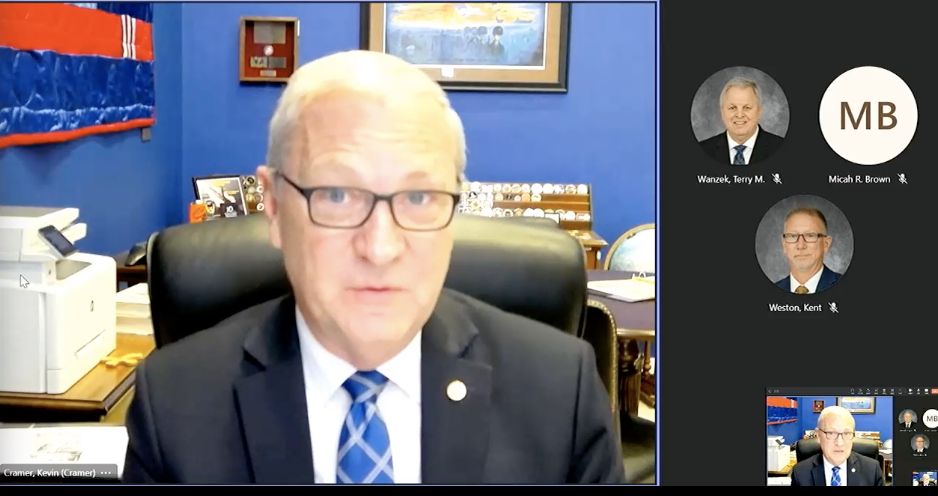WASHINGTON – Chairman Paul J. Thomas (R-Velva) and members of the North Dakota Legislature’s Agriculture and Natural Resources Committee invited U.S. Senator Kevin Cramer (R-ND) to testify about foreign investments in businesses, property, and agricultural lands and the need to expand the scope of the Committee on Foreign Investment in the United States (CFIUS). Senator Cramer encouraged leadership at the state level rather than waiting on the cumbersome and secretive federal process.

“When George Sinner was the governor, I’ll never forget his speech he gave at an event. He said something that has always stuck with me: any nation that has a rich supply of food and a rich supply of energy will always protect both if they can. We are fond, as an energy producing state, of saying energy security is national security. I would add, food security is national security,” said Cramer.
During his testimony, Senator Cramer announced the introduction of his CFIUS State’s Right to Know Act, which would make the committee more responsive to states before a review is ever commenced. Governors do not have security clearances or have access to SCIFs (Sensitive Compartmented Information Facilities) to hear the confidential information included in a CFIUS review, even if they are commander-in-chief of their own National Guard.
The CFIUS State’s Right to Know Act allows a governor who is aware of a potential acquisition or sale to ask CFIUS whether a certain transaction would warrant or trigger a review. The legislation aims to establish a mechanism for states to be proactive about potential projects in their state before they become problematic. The committee must respond to a governor’s request within 30 days.
“The federal government is known to be complex and cumbersome at its best, never linear, direct, or agile. Deferring decision-making to them runs the risk of ceding our state’s autonomy – something most North Dakotans would find objectionable. […] My bill gives governors some avenue to at least find out if something is going on, because you would rather be a partner than in the dark,” added Cramer. “If there is a silver lining to our experience in North Dakota, it is a heightened federal awareness of the need to safeguard our critical food supply chains. Federal legislation and leadership must not be the end-all be-all. North Dakotans do not need the federal government or CFIUS to tell them not to touch a hot stove or not to sell land to our enemies. Land is in limited supply, food is essential, and if we do not want the enemy taking our harvests when we might need them most, we should discourage land being sold to bad people.”
Click here to view his remarks.
Last year, Senator Cramer penned an op-ed in the Washington Examiner regarding American land acquisitions by foreign adversaries. He also cosponsored several pieces of legislation such as: